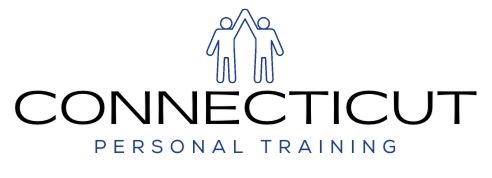Personal training of professional athletes is an interesting occupation. It combines your passion for fitness and an opportunity to work with the best athletes in the world. This guide will walk you through the process that will be needed to achieve this goal from education and certification, to experience and networking.
Education and Certification
Obtain a Fitness-Related Degree
A degree in a fitness-related subject is not a necessity, but it can create a sound base. Check programs in the field of kinesiology, exercise science, sports management or physical education. These programs provide valuable information on the anatomy and physiology of man and sports nutrition.
Get Certified
Certification plays a role in credibility and knowledge. Get a certification from a good body such as the National Strength and Conditioning Association (NSCA), the National Academy of Sports Medicine (NASM) or the American Council on Exercise (ACE). Such certifications typically require you to take an exam and meet some educational requirements.
Specialized Certifications
Consider additional certifications in the area of strength and conditioning, sports performance, or rehabilitation. These may make you more attractive to professional athletes who need special training programs.
 Gain Experience
Gain Experience
Begin with General Fitness Training
Begin your career working in general fitness training. Work in gyms, fitness centers or local sports clubs. This will enable you to build a good clientele and sharpen your coaching skills.
Work with Amateur Athletes
Switch to dealing with amateur or semi-professional athletes. This is invaluable because it puts you in touch with the needs and expectations of athletes. You will learn how to design sport specific training programs and understand the importance of prevention of injuries.
Volunteer or Intern
Look for a volunteer position or internship in sports teams, athletic clubs, or training center. This hands-on experience is very important in the understanding of the day-to-day operations and challenges that are faced by professional athletes.
Develop a Strong Skill Set
Get a Deep Understanding of Sports Science
Be up-to-date with the current sports science, nutrition, and injury prevention research. Attend workshops, seminars and conferences to acquire more knowledge and skills.
Master Communication Skills
Communication is important when dealing with professional athletes. You have to convey complex training concepts in simple and inspiring manner. Learn to listen actively in order to understand what your athletes want and what their goals are.
Study Injury Prevention and Rehabilitation
Prevention and rehabilitation of injuries is very important. Study the injuries that are common in sports and new methods of rehabilitation. Look for other certifications in sports medicine or physical therapy.
Network and Build Relationships
Connect with Industry Professionals
Attend industry events and join professional organizations, network with other fitness professionals. Networking may lead to job offers and deals.
Establish Relationships with Coaches and Teams
Associate with coaches, team managers, and other support staff. A positive image as a professional who is dependable, and knowledgeable may lead to referrals and work.
Utilize Social Media
Use social media to show your ability and to connect with athletes and other trainers. Share your knowledge, success stories, and insights in order to establish strong presence on the Internet.
Specialize in Sports Training
Choose Your Niche
Focus on one or a set of sports. Specialization will help you to become an expert in specific needs and training methods of that particular sport.
Stay Updated on Trends
Sports training is constantly evolving. Stay up to date with the latest training methods, equipment and trends in your favourite sport.
 Gain Professional Experience
Gain Professional Experience
Work with Professional Teams
Seek opportunities to work with the professional sports teams either as a member of the coaching staff or as a freelance contractor. This experience cannot be quantified in the understanding of high-end needs of professional athletes.
Offer Clinics and Workshops
Hold clinics and workshops for athletes and coaches. Not only does this illustrate your expertise, but it also helps you create a name in the industry.
Continuous Learning and Adaptation
Pursue Advanced Education
Look at a master’s degree in a related area, for example, sports management or exercise physiology. Education at university level can result in higher positions.
Adapt to New Challenges
Be prepared to adapt to new challenges and trends in sports industry. Flexibility and the attitude of learning are the keys to success.
It is not an easy task to become a personal trainer for professional athletes, it requires one to be committed, educated and experienced. With the right certifications, experience, great network and continuous learning, you can make yourself a top candidate in this competitive field. Keep in mind though, the process can be hard, but the reward of working with elite athletes and being part of their success is immeasurable. Keep your eyes on the prize and you will be on your way to a lucrative career in sports training.



